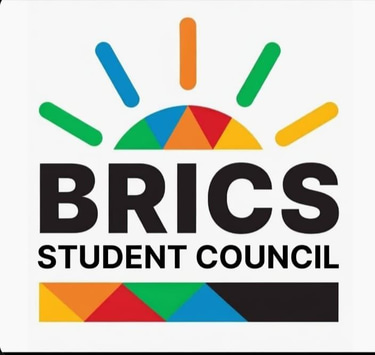Vision
To build a united, empowered, and globally engaged student community across BRICS+ nations and future members.
Mission
To serve as a platform for student cooperation, leadership development, research collaboration, cultural exchange, and policy dialogue among BRICS countries.
Objectives
The BRICS SC shall:
Promote student leadership and youth diplomacy.
Facilitate academic exchange, joint research, and innovation.
Encourage cultural understanding and people-to-people cooperation.
Represent student interests in BRICS+ related forums.
Promote sustainable development, social justice, and inclusive growth.
Support entrepreneurship, technology, and skills development.
For your information
More on BRICS+SC
